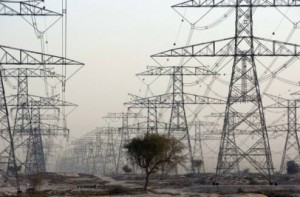Government emphasized to patronize private sector’s investment in energy
Thursday, December 29th, 2011 11:00:03 by Fayyaz Yaseen
Government emphasized to patronize private sector’s investment in energy
Lahore: (Thursday, December 29, 2011) Lack of gas and electricity has not only increased common man’s sufferings many folds, but have also halted the economic growth of the country. The government, on one hand, is not supplying
both of these essentials of life, and on the other hand, it is constantly increasing their prices.
These were the view expressed by the speakers of a seminar organized by a private media group here yesterday with the name of ‘Impact of Pepco Privatization on Economy and Public’.
The participants of the seminar included: Lahore Chamber of Commerce and Industry vice-president Saeeda Nazar, KESC ex-managing director Tanzeem Hussain Naqvi, Pakistan Agriculture Scientist Association (PASA) chairman Jamshad
Cheema, UET’s Institute of Business and Management UET director Dr Ali Sajid, and Pakistan Workers Federation general secretary Khurshid Ahmed.
Saeeda Nazar said that Pepco was established to restructure Wapda, improve electricity distribution and end loadshedding but it had badly failed its purpose. She said economy was badly affected due to energy crisis, adding that
India had given priority to industrial sector for electricity supply and had increased its productivity. She opined that private sector performed well in power generation as no one took the responsibility of failure in government institution. She said the
government was not implementing its policies. She said a number of power generating units were established in private sector. She demanded the government patronize the private sector to invest in energy sector.
Other speakers suggested if the government made Wapda and Pepco independent institutions, it would not disturb the situation. He said the KESC was making Rs 16 billion to Rs 17 billion profit annually before privatization, and
share price was Rs 26 per unit. Now, they added, annual loss of the KESC was Rs 17 billion, adding that the KESC was purchasing Rs 3.40 per unit electricity and selling nine rupees per unit. The company, they said, had failed to improve the situation despite
heavy subsidy of the government. They said the Wapda, since its creation in 1959 to 2004, had never faced loss, it generated 40 per cent electricity, its per unit cost was four rupees and then sold for five rupees to users. But over the last years, no up-gradation
was made in Wapda while six power stations were closed and government was purchasing 60 per cent power from IPPs at Rs 11 per unit which increased the circular debt to Rs 120 billion.
Short URL: https://www.newspakistan.pk/?p=7720

















